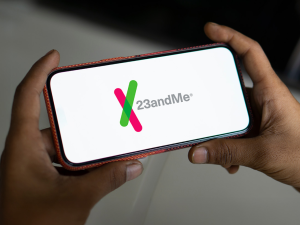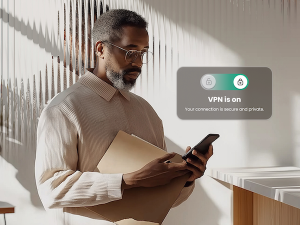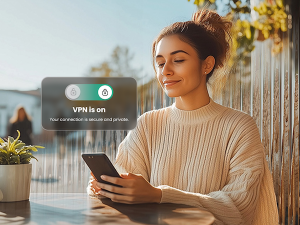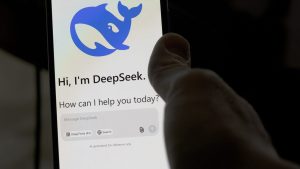The proliferation of mobile devices means that we can work or play online from almost anywhere, so it’s no surprise that public Wi-Fi networks have become more common. From hotels and coffee shops, to universities and city centers, Wi-Fi is widely available, but is connecting to these networks safe?
If you were carrying on a highly sensitive conversation on a park bench with your closest friend, would you want everyone in the immediate area to gather around and eavesdrop?
That’s essentially what happens—or what could happen—when you communicate online using public Wi-Fi, such as at coffee houses, hotels and airports.
Non-secured public Wi-Fi makes it easy for hackers to read your email correspondence and the information you type to get into your critical accounts.
Of course, with a VPN, your online activities will be unintelligible to eavesdroppers. A virtual private network will encrypt everything you do so that hackers can’t make sense of it. A VPN is a service you can use when accessing public Wi-Fi. A VPN will also prevent exposing your IP address.
So, if you are going to connect to public Wi-Fi, make sure that you take some steps to keep your device and information safe.
Follow these tips to stay protected:
- Turn off sharing—Keep others from accessing your computer and files by turning off sharing when you are on a public network. This can be accomplished by visiting your computer’s control panel (on Windows), or System Preferences (Mac OS X).
- Use a “Virtual Private Network”—If you frequently use public Wi-Fi, it might be a good idea to use a Virtual Private Network (VPN). A VPN is like your own private network you can access from anywhere. You can subscribe to VPN services for a low monthly fee.
- Avoid information-sensitive sites—When using public Wi-Fi, try to avoid logging in to banking and shopping sites where you share your personal and financial information. Only do these transactions from a trusted connection, such as your protected home network.
- Use sites that start with “https”—Sites that begin with “https” instead of just “http” use encryption to protect the information you send. Look for this level of security on sites where you plan to enter login and other personal information.
- Use multi-factor authentication – Find out which of your accounts offer two-factor authentication. This would make it next to impossible for a hacker, who has your username and password, to bust into your account—unless he had your phone in his hand—the phone that the two-factor is set up with.
- Always log out – Don’t just click or close out the tab of the account when you’re done; log off first, then close the tab
- Avoid automatically connecting to hotspots—Keep your computer or device from automatically connecting to available Wi-Fi hotspots to reduce the chances of connecting to a malicious hotspot set up to steal information. Make sure your device is set up so that it doesn’t automatically reconnect to that WiFi when within range. For example, your home WiFi may be called “Netgear” and will reconnect to “Netgear” anywhere, which might be a hackers connection who can snoop on your data traffic.
- PC:
- For Windows
- Make sure no “Connect Automatically” boxes are checked.
- Or, go to the control panel, then network sharing center, then click the network name
- Hit wireless properties.
- Uncheck “Connect automatically when this network is in range.
- For Mac:
- Go to system preferences, then network
- Under the Wi-Fi section hit the advanced button.
- Uncheck “Remember networks this computer has joined.”
- For Windows
- Mobile:
- For iOS:
- Go to settings, select the Wi-Fi network, then hit forget this network.
- For Android:
- Get into your Wi-Fi network list, hit the network name and select forget network.
- For iOS:
- PC:












